¿Cuáles son los tipos de bolsas para la máquina VFFS?
Blog de máquinas VFFS

Si busca soluciones de automatización de embalajes, póngase en contacto con nosotros y estaremos encantados de ofrecerle la solución más personalizada.
Vertical Form Fill Seal (VFFS) machines are widely used in packaging for products like snacks, powders, liquids, and granules. They form bags from a roll of flat film or pre-made tubing, fill them, and seal them in a continuous process. The types of bags compatible with VFFS machines depend on the machine's design, product type, and desired packaging style. The five primary VFFS bag types—Pillow Bags, Gusseted Bags, 3 Side Seal Bags,Block Bottom Bags, and Stick Packs—each offer unique advantages for specific food applications and market positioning strategies.
Which Bag Style Do You Need?
Pillow Bag: Universal Food Packaging Solution
What Are Pillow Bags and When Should You Choose Them?
Pillow bags represent the most fundamental VFFS packaging format, characterized by simple three-side sealing (two longitudinal seals and one transverse seal) creating a pillow-like appearance. This bag type offers maximum versatility across food applications while minimizing machine complexity and material requirements.
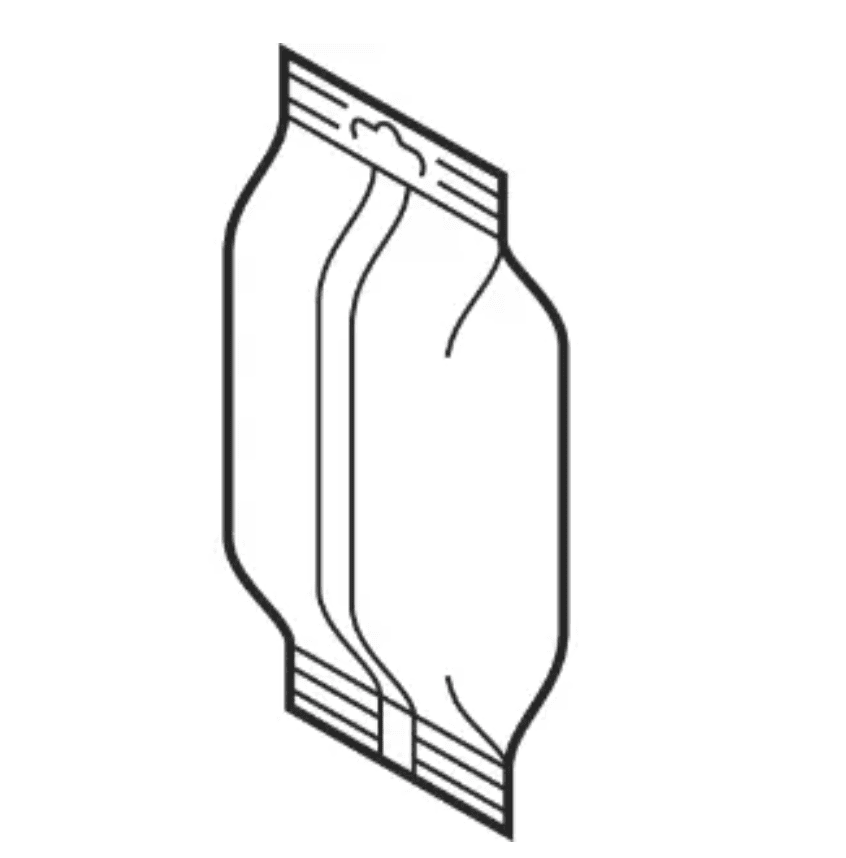
Key Technical Specifications:
- Sealing configuration: Three-seal design with overlap or fin seal options
- Material efficiency: 95-98% material utilization with minimal waste
- Production speeds: Up to 120 bags per minute on high-speed systems
- Size flexibility: Width 50-550mm, length 50-550mm typical ranges
Machine Compatibility Requirements:
- Standard VFFS equipment with basic forming tube configurations
- Minimal tooling changes for size adjustments
- Compatible with all major film types and barrier structures
- Suitable for entry-level to high-speed production systems
Pillow Bag Food Applications and Business Benefits
Optimal Food Products:
- Dry goods: Rice, pasta, cereals, granular products requiring cost-effective packaging
- Snack foods: Chips, crackers, nuts benefiting from simple opening and portion control
- Frozen products: Vegetables, fruits where product visibility and cost efficiency matter
- Bakery items: Bread, rolls, pastries requiring basic protection and freshness retention
Business Benefits for Food Manufacturers:
- Lowest packaging costs: Minimal material usage and simple machine requirements
- Fastest changeovers: 10-15 minutes between different product sizes
- Maximum flexibility: Easy adaptation to seasonal products and market testing
- Universal appeal: Familiar format with broad consumer acceptance
Gusseted Bag: Enhanced Capacity and Presentation
Understanding Gusseted Bags: When Volume and Stability Matter
Gusseted bags feature expandable side panels (gussets) that allow increased product capacity while maintaining compact shipping dimensions. This design provides superior stability when filled and enhanced shelf presence through improved standing characteristics.
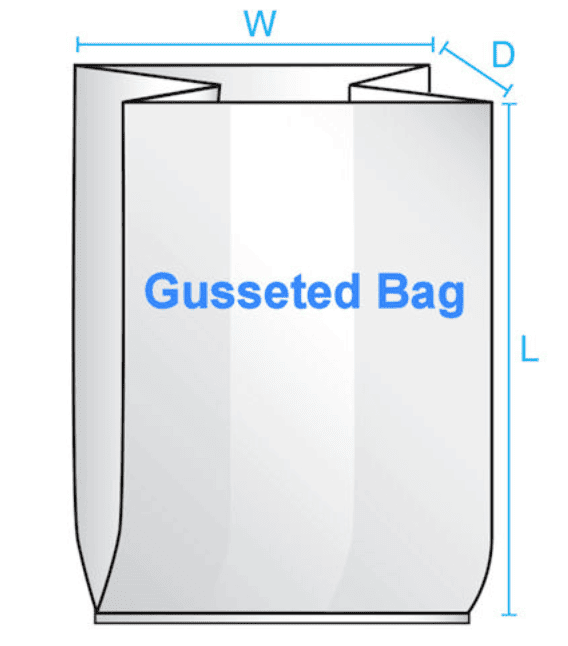
Technical Design Features:
- Dual gusset configuration: Side panels expanding 20-80mm per side
- Enhanced capacity: 40-60% more product volume than equivalent pillow bags
- Improved stability: Self-standing capability when filled
- Material optimization: Efficient use of film width for maximum capacity
Machine Requirements and Compatibility:
- Specialized forming equipment: Gusset folders and pneumatic controls required
- Advanced sealing systems: Multiple seal bars for gusset formation and closure
- Precise tension control: Critical for consistent gusset formation
- Speed considerations: Typically 60-120 bags per minute due to complexity
Gusseted Bag Applications in Food Industry
Ideal Food Products:
- Coffee and tea: Premium presentation with enhanced barrier protection and aroma retention
- Pet foods: Bulk packaging with easy pouring and resealing capabilities
- Confectionery: Bulk candy, chocolates requiring attractive display and portion control
- Specialty grains: Quinoa, specialty rice, organic products emphasizing premium positioning
Manufacturing Advantages:
- Reduced shipping costs: Compact dimensions when empty, efficient case packing
- Premium positioning: Enhanced shelf presence commanding higher price points
- Consumer convenience: Easy storage, pouring, and handling characteristics
- Brand differentiation: Distinctive appearance separating from commodity packaging
3 Side Seal Bag: Precision Sealing for Premium Food Products
What Are 3 Side Seal Bags and How Do They Differ from Pillow Bags?
3 Side Seal Bags feature three distinct sealing operations—two side seals and one bottom seal—creating a flat, professional appearance ideal for premium food products. Unlike pillow bags with back seams, 3 side seal bags eliminate visible seam lines on the front and back surfaces, providing superior product presentation.
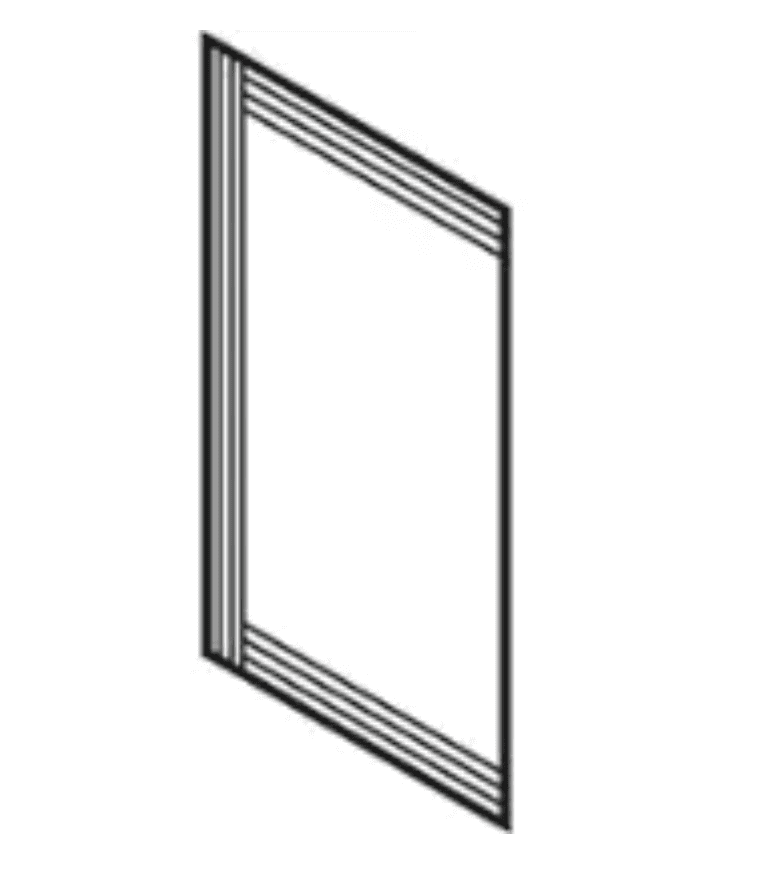
Advanced Technical Specifications:
Triple sealing system: Independent side and bottom seal operations
Flat surface design: No back seam for optimal printing and branding
Enhanced barrier integrity: Multiple seal points improving product protection
Premium appearance: Professional presentation suitable for high-value products
Specialized Machine Requirements:
Multi-station sealing: Sequential sealing operations requiring precise timing
Advanced forming systems: Specialized forming boxes for flat profile creation
Quality control integration: Multiple seal inspection systems
Precise material handling: Critical film tracking for consistent seal placement
3 Side Seal Bag Food Applications and Market Advantages
Premium Food Applications:
Specialty snacks: Gourmet nuts, dried fruits, artisanal chips requiring premium presentation
Organic products: Health-focused foods benefiting from clean, professional appearance
Imported delicacies: International specialties requiring durable, attractive packaging
Gift food items: Holiday treats, premium chocolates emphasizing visual appeal
Competitive Market Advantages:
Maximum branding space: Uninterrupted front and back surfaces for graphics
Premium perception: Professional appearance commanding 15-30% price premiums
Enhanced protection: Superior seal integrity extending shelf life
Retail appeal: Flat profile optimizing shelf space utilization
Block Bottom Bag: Maximum Stability and Professional Presentation
Understanding Block Bottom Bags: When Stability and Capacity Converge
Block Bottom Bags feature a flat, rectangular base providing maximum stability and professional appearance. This design combines the capacity advantages of gusseted bags with superior stability and premium presentation, making them ideal for high-value food products requiring exceptional shelf presence.
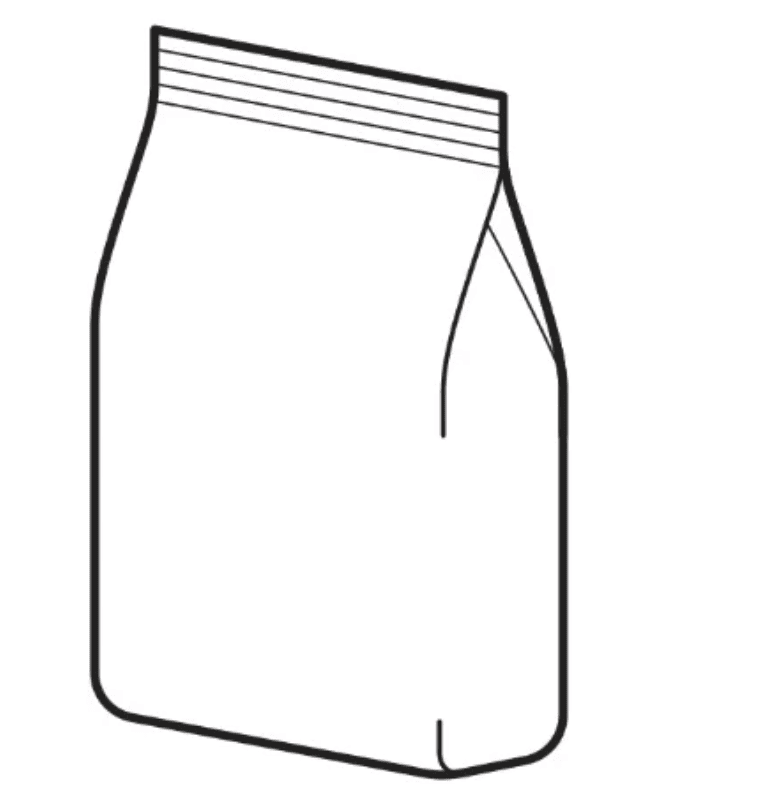
Advanced Design Characteristics:
- Flat bottom construction: Rectangular base providing maximum stability
- Enhanced capacity: Optimal volume utilization with professional appearance
- Superior standing ability: Self-supporting design eliminating tipping concerns
- Premium aesthetics: Box-like appearance conveying quality and professionalism
Complex Machine Requirements:
- Multi-stage forming: Sequential folding operations creating flat bottom
- Precision controls: Advanced servo systems ensuring consistent formation
- Quality monitoring: Integrated inspection systems for bottom seal integrity
- Flexible tooling: Quick changeover capabilities for multiple sizes
Block Bottom Bag Applications and Market Opportunities
High-Value Food Applications:
- Specialty coffee: Premium roasted beans requiring superior presentation and barrier protection
- Gourmet snacks: High-end nuts, chocolate-covered specialties, artisanal products
- Organic bulk products: Health-focused grains, seeds, dried fruits emphasizing quality
- Retail-ready packaging: Products requiring immediate shelf-ready presentation
Strategic Business Advantages:
- Maximum differentiation: Distinctive appearance creating premium brand perception
- Optimal space utilization: Efficient storage and shipping with professional appearance
- Consumer convenience: Easy handling, storage, and dispensing characteristics
- Retail optimization: Self-standing design maximizing shelf impact and space efficiency
Stick Pack: Portion Control and Convenience Solutions
Understanding Stick Pack Technology and Applications
Stick packs represent specialized single-serve packaging optimized for portion control, convenience, and cost-effective distribution of powdered, granular, and liquid food products. This format excels in food service, retail, and institutional markets requiring precise portioning.
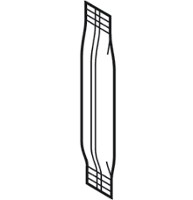
Technical Specifications:
- Narrow width design: Typically 15-50mm width, 80-200mm length
- Three-seal configuration: Optimized for high-speed production up to 120+ packs per minute
- Minimal material usage: Maximum product-to-package ratio
- Versatile orientation: Vertical or horizontal dispensing options
Specialized Equipment Features:
- Multi-lane systems: 2-12 lanes for high-volume production
- Precision dosing: Accurate filling systems for consistent portions
- Easy-tear features: Notching and perforation capabilities
- Date coding integration: Inline printing and marking systems
Stick Pack Food Market Opportunities
High-Growth Applications:
- Beverage powders: Coffee, tea, protein supplements, flavoring mixes
- Seasonings and spices: Individual portions for foodservice and retail
- Nutritional supplements: Vitamins, probiotics, health products requiring precise dosing
- Condiments: Sauces, dressings, sweeteners for foodservice and travel markets
Business Model Advantages:
- Premium pricing: Single-serve convenience commanding 200-400% price premiums
- Market expansion: Access to foodservice, vending, and convenience channels
- Brand extension: Line extensions for existing products with minimal risk
- Consumer trends: Growing demand for portion control and on-the-go consumption
VFFS Bag Type Compatibility Matrix and Selection Guide
Machine Compatibility Assessment Framework
|
Bag Type |
Machine Complexity |
Changeover Time |
Material Efficiency |
Ideal Applications |
|
Pillow Bag |
Basic |
10-15 min |
95-98% |
Commodity foods, snacks |
|
Gusseted Bag |
Moderate |
20-30 min |
90-95% |
Coffee, pet food, bulk products |
|
3 Side Seal |
Advanced |
25-35 min |
88-93% |
Premium snacks, specialty foods |
|
Block Bottom |
Complex |
35-50 min |
85-90% |
Gourmet products, retail-ready |
|
Stick Pack |
Specialized |
15-25 min |
92-96% |
Single-serve, portion control |
Product-to-Bag Type Strategic Matching System
High-Volume Commodity Products (Rice, Pasta, Basic Snacks):
- Primary choice: Pillow bags for maximum cost efficiency and production speed
- Alternative: Gusseted bags when enhanced capacity and presentation add value
- Key decision factors: Material costs, production volumes, competitive pricing pressure
Premium and Specialty Foods (Organic, Gourmet, Artisanal):
- Primary choice: 3 Side Seal or Block Bottom bags for maximum differentiation
- Alternative: Gusseted bags balancing premium appearance with cost considerations
- Key decision factors: Brand positioning, price point tolerance, competitive differentiation needs
Single-Serve and Convenience Applications (Beverages, Seasonings, Supplements):
- Primary choice: Stick packs for optimal portion control and convenience pricing
- Alternative: Small pillow bags for multi-serve portions in cost-sensitive markets
- Key decision factors: Serving sizes, distribution channels, consumer convenience requirements
Bulk and Institutional Products (Coffee, Pet Food, Food Service):
- Primary choice: Gusseted bags for handling efficiency and capacity optimization
- Alternative: Block Bottom bags for premium institutional and retail markets
- Key decision factors: Handling requirements, storage efficiency, professional appearance needs
Machine Selection and Compatibility Optimization for Food Manufacturers
Production Planning and Capacity Analysis
Volume-Based Selection Criteria:
- Low volume: Pillow bag systems offer optimal cost-effectiveness with proven reliability
- Medium volume : Gusseted or 3 Side Seal depending on product positioning and margin requirements
- High volume: High-speed pillow or specialized stick pack systems maximizing throughput
- Multi-product operations: Flexible systems supporting multiple bag types with efficient changeover capabilities
Changeover Efficiency and Multi-Format Considerations:
- Single product focus: Optimize for maximum speed and efficiency with dedicated bag type systems
- Multi-product requirements: Balance changeover time with production flexibility for diverse product portfolios
- Seasonal variations: Plan for capacity flexibility and format changes supporting seasonal product demands
- Market testing capabilities: Maintain capability for small-batch runs and new product development initiatives
Quality Control and Performance Monitoring by Bag Type
Bag Type Specific Quality Parameters:
- Pillow bags: Seal strength consistency, film tracking accuracy, fill weight precision, back seal quality
- Gusseted bags: Gusset formation uniformity, bottom seal integrity, standing stability performance
- 3 Side Seal bags: Multi-seal coordination, flat surface quality, seal strength across all three seals
- Block Bottom bags: Bottom formation consistency, corner seal quality, overall structural integrity
- Stick packs: Portion accuracy, tear characteristics, seal integrity across multiple production lanes
Performance Optimization Strategies:
- Preventive maintenance: Bag-type specific service schedules ensuring optimal performance
- Operator training programs: Format-specific skills development and certification systems
- Quality systems integration: Statistical process control for each bag type with documented standards
- Continuous improvement: Data-driven optimization of speed, quality, and efficiency parameters
Bag Type Business Applications and ROI Analysis
Market Positioning and Competitive Advantages
Pillow Bag Market Strategy:
- Cost leadership positioning: Lowest packaging costs enabling competitive pricing strategies
- Broad market penetration: Wide applicability across food categories and consumer segments
- Operational efficiency focus: Minimal training and maintenance requirements reducing total costs
- Scalability advantages: Easy capacity expansion and production line multiplication
Gusseted Bag Differentiation Strategy:
- Premium positioning: Enhanced shelf presence commanding 10-20% price premiums
- Operational efficiency: Improved storage and shipping economics through capacity optimization
- Consumer appeal enhancement: Superior handling characteristics and functional benefits
- Brand building support: Distinctive appearance supporting brand differentiation initiatives
3 Side Seal Premium Strategy:
- Professional positioning: Clean appearance supporting 15-30% price premiums
- Brand optimization: Maximum printing surface for marketing and regulatory information
- Quality perception: Superior appearance enhancing brand value and consumer trust
- Retail appeal: Flat profile optimizing shelf space and visual impact
Block Bottom Luxury Strategy:
- Maximum differentiation: Distinctive appearance supporting 25-45% price premiums
- Premium market access: Entry to specialty retail and gourmet food channels
- Competitive advantage: High barriers to entry protecting market position
- Consumer experience: Superior functionality and convenience justifying premium pricing
Stick Pack Innovation Strategy:
- Value creation opportunity: Single-serve convenience enabling 200-400% price premiums per serving
- Channel expansion: Access to foodservice, vending, and on-the-go consumption markets
- Product innovation platform: Line extensions and new categories with minimal development risk
- Trend alignment: Perfect match with portion control and convenience consumer mega-trends
Key Success Factors in VFFS Machine Bag Type Selection
- Align bag type selection with brand positioning, target markets, and competitive strategy, prioritizing these over purely operational considerations.
- Conduct a comprehensive cost analysis that encompasses materials, labor, maintenance, and market premiums, beyond just initial equipment expenses.
- Factor in future volume growth, product line expansion, and evolving market dynamics when choosing bag types and related equipment.
- Prioritize investments in employee training, robust maintenance protocols, and quality control systems, irrespective of the bag type's complexity.
- Leverage bag type choices as a strategic lever to enhance brand identity, achieve premium market positioning, and secure a lasting competitive edge.
This guide offers a crucial framework for selecting the right VFFS bag type, optimizing both your operations and market strategy in the dynamic food packaging landscape. Explore our comprehensive range of VFFS packaging machines, featuring detailed specs, case studies, and videos. See how our reliable equipment empowers leading food brands worldwide.
FAQ:
Q1: For a new packaging operation, which bag type offers the fastest ROI?
A: Pillow bags are the best choice for new operations due to their low initial investment and high operational flexibility, offering the fastest return on investment.
Q2: What is the potential price premium for upgrading from a pillow bag to a block bottom bag?
A: Upgrading to a block bottom bag can support a 25-45% price premium, as its unique box-like appearance effectively enhances brand value and shelf appeal.
Q3: What is the difference in changeover times between bag types when running multiple products?
A: Pillow bags take about 10-15 minutes to change over, whereas complex block bottom bags require 35-50 minutes, significantly impacting efficiency for multi-product lines.
Q4: Which bag type is most suitable for large-volume products like coffee or pet food?
A: Gusseted bags are the top choice, as they increase capacity by 40-60% and improve storage efficiency while providing a stable, stand-up presentation.
Q5: For maximum production speed and efficiency, which packaging format should be considered?
A: Multi-lane stick pack systems offer the highest production efficiency, with speeds exceeding 120 bags per minute, making them the ideal choice for high-volume, single-serve products.

